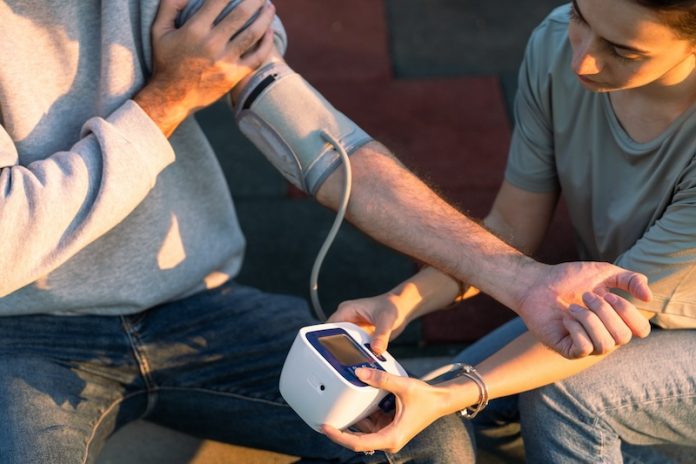
A new study from the University of Miami has revealed a surprising connection between our blood pressure and brain health as we age. The research suggests that lower diastolic blood pressure—the pressure in the arteries when the heart is resting—may help prevent certain kinds of brain damage that can lead to memory loss, strokes, and falls in older adults.
Blood pressure is measured using two numbers. The first number, called systolic pressure, shows how much force the blood uses when the heart pumps.
The second number, called diastolic pressure, shows the pressure when the heart is resting between beats. Doctors usually pay more attention to the systolic number, but this study shows the second number might matter just as much when it comes to the brain.
The research focused on white matter lesions, which are small areas of damage or scarring in the brain. These lesions are often found in older adults and can interrupt the brain’s communication system—like static on a phone call. This can lead to confusion, slower thinking, balance problems, and a higher risk of falls or strokes.
To explore this further, scientists studied over 1,200 adults aged 50 and older. They discovered that people with lower diastolic blood pressure—especially below 80—had fewer white matter lesions in their brains compared to people whose diastolic pressure was higher, especially above 90.
This was unexpected. In the past, most attention has been on high systolic pressure, but this study suggests that the pressure during the heart’s resting phase plays an important role in protecting brain tissue from damage.
Not all brain regions were affected the same way, but the areas linked to thinking, memory, and movement showed fewer scars in those with lower diastolic pressure.
White matter in the brain works like highways, sending signals between different parts of the brain. When these highways have “potholes,” or lesions, it can slow or block the messages.
This can make it harder to move around safely, remember things, or think clearly. As people get older, these lesions become more common—by age 60, about 1 in 5 people has them, and the number rises with age.
The good news is that this study gives us a way to help reduce the risk. By keeping diastolic blood pressure in a healthy range, we may be able to protect the brain from developing these lesions.
The research team, led by Dr. Michelle Caunca, points out that caring for blood pressure is not just about heart disease anymore—it’s also about keeping the brain strong and sharp.
The takeaway is clear: regular blood pressure checks, focusing on both numbers—not just the top one—can make a big difference. Working with your doctor to manage blood pressure could help you stay mentally sharp, avoid dangerous falls, and lower your chances of stroke as you age.
In summary, this study shows that diastolic blood pressure deserves more attention. Keeping it in a healthy range could protect the brain’s white matter and help us stay clear-headed and steady on our feet well into old age.
If you care about stroke, please read studies that diets high in flavonoids could help reduce stroke risk, and MIND diet could slow down cognitive decline after stroke.
For more health information, please see recent studies about antioxidants that could help reduce the risk of dementia, and tea and coffee may help lower your risk of stroke, dementia.
Copyright © 2025 Knowridge Science Report. All rights reserved.



